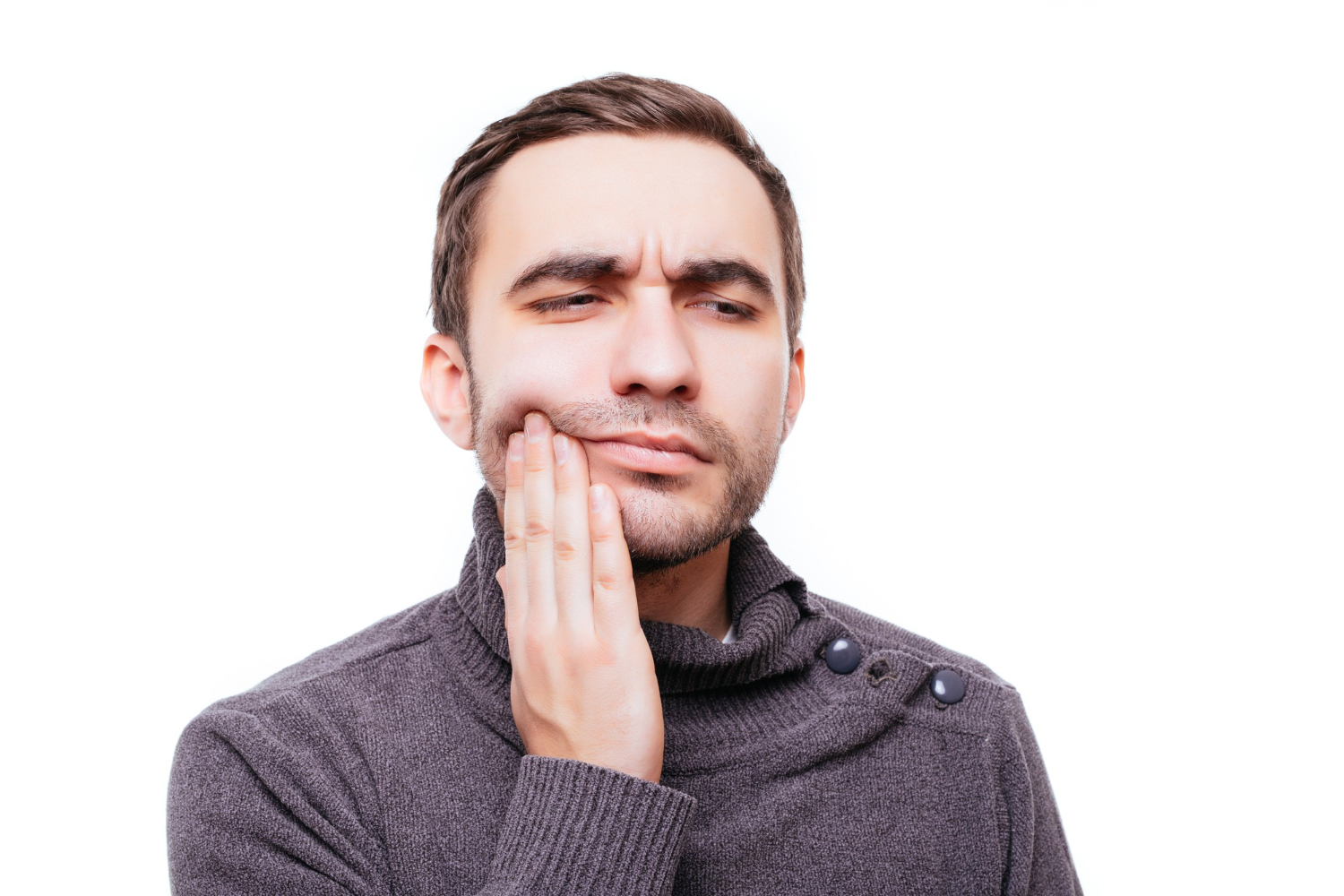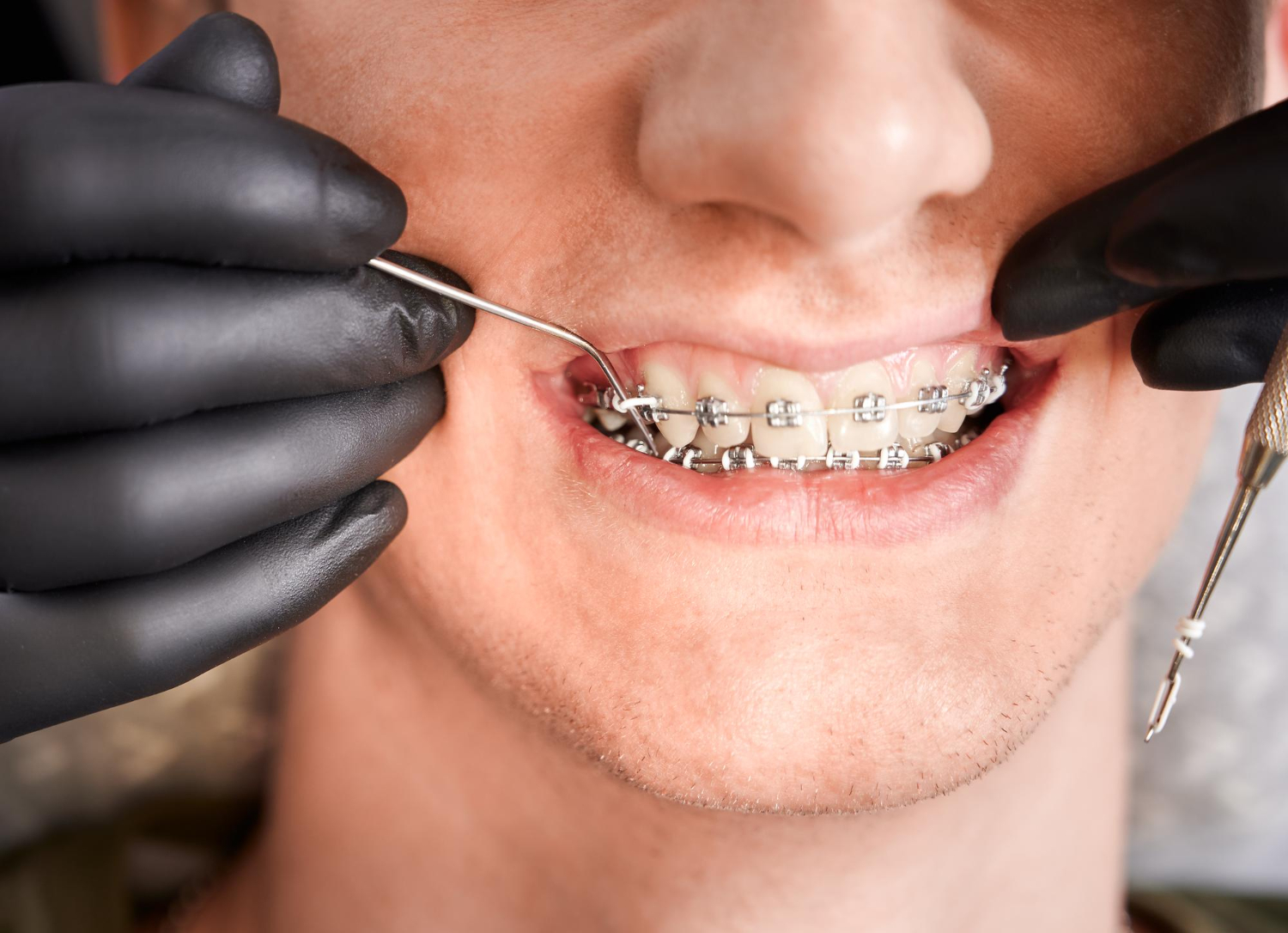Get Relief from TMJ Pain with Expert Care at Smiles By Lorino – The Top TMJ Specialist in NJ
TMJ / TMD

The Truth About TMJ Pain: Causes, Symptoms, and Treatments
In this complete guide, we will examine TMJ pain, its causes, symptoms, and treatments. Dr. Robert Lorino, an orthodontist in New Jersey, aims to help TMJ patients achieve lasting relief from discomfort. To help you understand TMJ pain and the treatment options available here’s all you need to know.


What is TMJ Disorder?
The TMJ or temporomandibular joint (TMJ) is a complex joint connecting a person’s jawbone to the skull. Some facial muscles involved in chewing are also attached to the lower jaw. When problems arise in the TMJ, a person may experience pain in the jaw, neck, face, and ear as well as suffer from headaches.
CAUSES
1. Bruxism
Also known as teeth grinding, bruxism results in trauma and strain in the TMJ region. When a person grinds their teeth as a habit or during sleep, the TMJ will be under extensive pressure. It can result in muscle spasms and inflammatory reactions in the TMJ area. Additionally, it can cause teeth misalignment, chewing issues, and teeth damage.
2. Clenching
Clenching is involuntary jaw tightening. It is a similar issue to teeth grinding and can happen during sleep or while awake. Some people who also chew on gum, pen or pencil, or their fingernails tend to clench more than appropriate. Stressful situations can also trigger this reaction. Because TMJ is a complex joint, clenching can alter the alignment of TMJ and cause pain or discomfort.
3. Osteoarthritis
Similar to how the other joints in the body are prone to arthritic changes, TMJ joints are also at risk of developing osteoarthritis. When bones that form TMJ start to rub against each other, it can cause inflammation, pain, stiffness, and other TMJ symptoms. This degeneration is usually caused by age or repetitive trauma. Immunologic and inflammatory diseases may also cause osteoarthritis to progress more quickly than usual.
4. Rheumatoid Arthritis
While it isn’t the most common TMJ disorder cause, TMJ pain can also be caused by rheumatoid arthritis. This is an autoimmune condition where the body’s immune system attacks and destroys the TMJ components. It may affect TMJ occasionally, but it is more evident in young patients.
SYMPTOMS
1. Facial Muscle and Jaw Pain
Muscle spasms in the TMJ area can cause pain, tenderness, and stiffness in the jaw and face. Additionally, it can lead to pain that radiates from TMJ and spreads to the neck and shoulders. This pain may occur when you talk, chew, or yawn. It mostly appears in the TMJ itself, or may move elsewhere in the scalp, face, or jaw, leading to more severe discomfort such as dizziness, headaches, or migraine symptoms.
2. Ear Pain and Tinnitus
Ear pain is one of TMJ disorders’ most common symptoms. It can result from TMJ inflammation and cause ringing, buzzing, or clicking sounds in the ear. Some people may mistake this TMJ disorder symptom for an ear problem, which can affect getting the right treatment for such pain.
3. Clicking, Grating, and/or Popping Sounds in the Jaw Joint
TMD may cause clicking, grating, or popping sounds in the TMJ region. This may be because the disc is in an abnormal position. If these sounds do not cause pain, treatment may not be as necessary.
4. Swelling in the Face or Jaw
Inflammation and swelling can occur in the TMJ region because of TMD. This may make it difficult to open and close the mouth. TMJ disorder patients may also experience difficulty while eating or speaking because of this.
5. Locked Jaw or Dislocation
TMJ disorder can cause the lower jaw to become locked or dislocated. It happens when TMJ discs and ligaments are out of their natural position. TMJ disorder patients may have difficulty completely opening their mouths, or they might get stuck wide open.
TREATMENTS
There are many types of treatment available for TMJ disorder. However, the most important thing you need to do is consult a doctor. TMJ treatments can vary depending on the severity of your TMJ disorder or the type of TMJ disorder and a medical professional can recommend the best TMJ treatment plan for you.
Below are the available TMJ treatment options:
1. Medication
Nonsteroidal anti-inflammatory drugs (NSAIDs) are used to reduce TMJ pain and inflammation. This type of TMJ treatment can be used for short-term pain management. It is essential to consult your doctor before taking any medications for TMJ disorder.
2. Physical Therapy
Physical exercises can be used to relax TMJ muscles and reduce pain. This treatment is particularly useful for TMD patients who experience pain due to stress or tension. Physical therapy may involve facial massage, jaw stretches, and relaxation techniques.
3. Oral Splints or Mouth Guards
Occlusal appliances may also be used to treat TMJ disorder. These are custom-made oral splints that are designed to fit perfectly in the TMJ area, providing support and relieving symptoms.
4. Surgery
In severe cases, surgery may be needed to correct TMJ pain. Surgery involves TMJ realignment and repositioning of TMJ components. In some cases, TMJ arthroscopy may be used to examine and repair TMJ components within the joint.
5. Orthodontic Treatments
Orthodontic TMJ treatments may involve braces or aligners to correct jaw alignment and reduce symptoms. As a matter of fact, many TMJ disorders are related to incorrect bites and teeth misalignment. When you have a malocclusion, your TMJ area experiences pain and pressure so correcting it is a permanent way to prevent TMJ pain.
Consult an Orthodontist for Proper Diagnosis & Treatment
Orthodontists have the right knowledge and experience to determine the cause and treat TMJ disorders. They can also provide you with the most appropriate treatment plan to reduce your TMJ symptoms and improve your oral health.
At Smiles by Lorino in New Jersey, we provide a comprehensive evaluation for suspected TMJ disorder and recommend the most suitable treatments for our patients. We offer braces and clear aligners to patients of all ages in a comfortable, patient-friendly environment. Contact us today to learn more about our services or to schedule an appointment with Dr. Robert Lorino.

